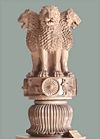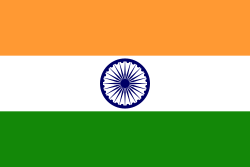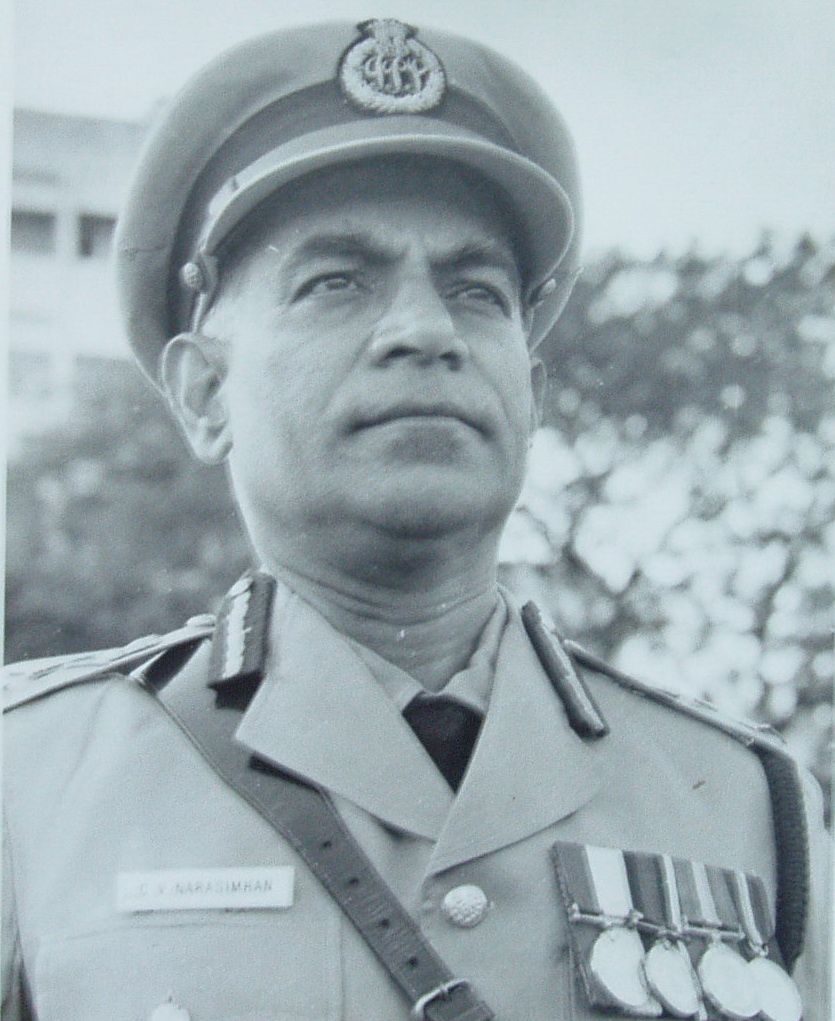Foreword by David. H. Bayley
Distinguished Professor, School of Criminal Justice,
State University of New York at Albany, New York, USA. |
|
I am delighted to have been asked to write a foreword to the
websites created to honor the accomplishments of C.V. Narasimhan
(C.V.) and N. Krishnaswamy (N.K.). They are legendary figures in
the modern Indian police. Although I will comment on some of their
history, I will write largely as a friend, colleague, and admirer.
It has been my enormous good fortune not only to be associated
with the Indian police, but to have been facilitated in my work by
insightful, dedicated, and far-sighted IPS officers such as C.V.
and N.K. Like them I have enjoyed the beauty of the old IPS
training academy at Mt.
Abu. From them I have learned a great
deal about the evolution of the Indian police since
Independence. And with them I have shared
the joys of friendship. Read full foreword
here. |
Biography of C.V.
Narasimhan
Born in 1925 to Conjeevaram Venkatesa Sastry and
Jagadambal, in the town of Shankari, in the present day state of Tamil
Nadu, (then called Madras), India, Conjeevaram Venkatesan Narasimhan spent his childhood
days in the town of Sholingapuram, Tamil Nadu. He was the first of four
children in the family of two sons and two daughters.
C. Venkatesa Sastry was a school teacher in the Australian
Presbyterian Mission (APM) Middle School at Sholingapuram (then called Sholingur)
and C.V. Narasimhan ('Chaami' as he was affectionately known in the
family) attended school at APM middle school and grew up in a traditional, modest, small
town lower middle class Hindu family setting of British-ruled India.
Since
the APM school was equipped only up to the 8th class, C.V. Narasimhan
moved to the present city of Chennai (then called Madras) in 1937 to live
with his grand-father (a retired government employee) and pursued his
education from the 9th Class onwards at Pennathur Subramania
Iyer High School (P.S. High School) in Mylapore, Chennai. C.V. Narasimhan secured the
first rank and a Gold Medal in the school final 11th class
in 1940.
On the merit of his performance he
then got admitted to the prestigious
Loyola
College
in
Madras
from where he graduated with Honours in Mathematics in 1945. It was during
his final year at Loyola college that Narasimhan’s life
took an unexpected turn with the untimely and tragic passing away of his
father just on the eve of his final examination. Despite this tragic event in
the family C.V. Narasimhan showed his grit and will by meritorious performance
in the examination, securing the first rank in the
Madras
University
and winning the Ananthakrishnan Gold Medal and Stuart Prize of the University
in 1945. Following his father’s demise the burden of supporting his family and
raising his siblings immediately fell on his young shoulders, and he bore it
resolutely.
Family
circumstances being what they were at the time he graduated from Loyola, there
was little choice for the 19 year old C.V. Narasimhan but to take up a job
immediately, without pursuing any further research study in Mathematics which
was his earlier ambition. His par-excellence performance from Loyola college
earned him an Assistant Professor's job at the
St. Joseph
’s college in the city of
Bangalore
, which then proved to be the start
of a remarkable career that saw C.V. Narasimhan scale the highest of heights of
government service in a free and independent
India
. His stint in the education arena was cut short when he
took the competitive examination for recruitment to the new All-India
Services which were constituted in
1947 when
India
became a sovereign State independent of British rule. In this competitive
process C.V. Narasimhan was placed first in the first batch of officers
appointed to the Indian Police Service ( IPS )
to staff the commanding levels in the police in
independent
India
. The first batch of IPS officers graduated
from the
National
Police
Academy
at
Mount
Abu
in
1949.
'CVN' as he was known amongst his friends and colleagues, was adjudged as the
Best Cadet of the graduating batch and awarded the prestigious President’s Revolver as
prize.
C.V. Narasimhan married
Kamala,
the eldest daughter of Mangalam
and
M.K. Narayanamoorthy of Chennai city, in 1952.
Since her marriage to C.V. Narasimhan, Kamala Narasimhan went on to build
her own career in the field of Carnatic Music as an accomplished player on the
Veena (a classical string instrument from southern India). She has given numerous concerts and has been featured as a professional
artist on a regular basis on the All India Radio.
C.V. and Kamala Narasimhan have three children and five grandchildren.
C.V.
Narasimhan held senior positions in Tamil Nadu police as well as
important posts under the Government of India including Joint Secretary to
Government in the Union Home Ministry, Director
of Central Bureau of Investigation and Member-Secretary of the National Police
Commission in the rank of Secretary to the Government of India. He was awarded
the Police Medal for meritorious service in 1962 and the President’s Medal for
distinguished service in 1971.
He presided over the INTERPOL sessions at
Stockholm
in
Sweden
in 1977 and took a leading hand in evolving a working procedure for
international cooperation in the investigation of economic crimes.
C.V. Narasimhan retired from Indian Police Service in 1983 as
Director General of Police in Tamil Nadu, and settled in
Chennai
,
India
. Since retirement, he has continued his contributions to society, in particular
to the causes of good governance and education. His services were utilised by
the Government in the following assignments:
-
Nominee of the Governor of Tamil Nadu in the Syndicate
of Bharathiar University at Coimbatore,
-
Member of the Standing Advisory Council of the Madras
University,
-
Member of Justice Ramanujam Committee for
Administrative Reforms and
-
Member of Justice Sadashiva Committee set up by the
National Human Rights Commission. He was also closely associated with
consumer protection activities and functioned as a Trustee of Consumer and
Civic Action Group, Chennai for
over 18 years.
He is presently the Chairman of P.S.Charities and President of
Vivekananda Educational Society which run 24 schools in and around Chennai.
Despite the 'detour' into Indian Police Service, C.V. Narasimhan has
maintained his interest in Mathematics
and to this day enjoys tackling complex mathematical problems, specially those
relating to Projective Geometry and Number Theory.
His other interests include Tamil literature, Philosophy, the game of
Tennis of which he was an ardent fan and active player in his service days,
Bridge, and Chess. His commitment to the sustainment and growth of Tamil
literature led him to be elected and remain as the President of Delhi Tamil
Sangam in
New Delhi
for nine years between 1971 – 1980.
Foreword by
David H. Bayley
Distinguished Professor, School of Criminal Justice, State
University of New York at Albany, New York, USA.I am
delighted to have been asked to write a foreword to the websites
created to honor the accomplishments of C.V. Narasimhan and N.
Krishnaswamy. They are legendary figures in the modern Indian
police. Although I will comment on some of their history, I will
write largely as a friend, colleague, and admirer. It has been my
enormous good fortune not only to be associated with the Indian
police, but to have been facilitated in my work by insightful,
dedicated, and far-sighted IPS. officers such as C.V. and N.K.
Like them I have enjoyed the beauty of the old IPS training
academy at Mt.
Abu. From them I have
learned a great deal about the evolution of the Indian police
since Independence. And with
them I have shared the joys of friendship.
N.K. was the first of the two that I
met. It was in 1972, or possibly 1973, at the United Nations and
Far East Institute for the Prevention of Crime and the Treatment
of Offenders in Fuchu, Japan, a suburb of Tokyo. This training facility, more familiarly
known as UNAFEI, is run by the Japanese Ministry of Justice and
draws scholars and practitioners to seminars from all over Asia
and sometmes as far away as the Middle East and
Africa. N.K. was an invited participant from
India
and I was a lecturer from the
United States. I remember him not
only for his thoughtful and insightful comments about the role of
police in democratic societies, but also for the lovely sound of
his flute as he practiced in quiet corners of the UNAFEI grounds.
I met C.V. in the late 1970s when he
was Member Secretary of the National Police Commission
(1977-1981). The Commission, under the able leadership of Dharma
Vera, retired Governor of West Bengal,
had asked me contribute to its deliberations as a consultant. My
task was to explore the proper relationship between operational
police officers and elected political leaders. Not to be too
cynical, but it would appear that my efforts have made the
situation worse rather than better. When Mr Rustumji, Member of
NPC, later visited the United States,
my wife and I had the great pleasure of having him for dinner at
our home in Denver, Colorado.
When I returned to India
as the NPC was winding down, C.V. gave me an extensive personal
briefing on its main findings at the Commission’s office in New Delhi.
In the ensuing years I have been kept
up-to-date about C.V. and N.K. through the good offices of R.K.
Raghavan, another close IPS friend, who tries to bring us together
whenever I am in Chennai and C.V. and N.K. are not off doing good
work somewhere else in
India
or the world. Rest is not something that either of them practices
very much.
What is remarkable for me is that I
have had the opportunity to knowing personally two of the men who
integrated the IPS after Independence. Theirs was the generation of
officers who assumed responsibility for administering government
in India after the
British relinquished control. This was a daunting task after the
agony of Partition, the rigors of World War II, the recriminations
of the Independence struggle, and the need to nurture
and accommodate a new political class.
India
has justly celebrated several of these gifted administrators,
including Vallabhbhai Patel, after whom the
National Police Academy
in Hyderabad
is named. Because C.V. Narasimhan and N.Krishnaswamy are of that
venerable generation, we have a unique opportunity to learn what
it was like to “Indianize” the vaunted steel-frame government
during that momentous period.
Like C.V. and N.K. I have been
associated with the Indian police almost all of my professional
life. They, of course, as leaders and me only as an observing
scholar. I have been distressed by what I perceive as a decline in
the standards of Indian policing during my lifetime. Perhaps my
judgment romanticizes the past, but I know that C.V. and N.K.
share this concern. Unlike me, however, they have tried to do
something about it, by leadership, by personal example, and by
advocacy. Both have worked to implement the reforms
recommended by the Indian National Police Commission. As evidence
of their continued concern with policing, C.V. has recently
written a short paper about direct recruitment to the IPS, setting
the issue within the historical sweep of Indian policing since Independence and stipulating the principles
that should guide IPS leadership. Among his recommendations, C.V.
calls correctly for political neutrality of the police. He has
been too diplomatic, in my opinion, in not adding that Indian
politicians must learn to respect the operational and managerial
integrity of the IPS. C.V. knows this issue full well, having
wrestled with it throughout his career.
N.K. has added an insightful annexure
to C.V.’s paper about the importance of intelligence, in the
technical sense, in police work. Intelligence gathering, he
argues, has not utilized enough face-to-face interactions with the
public and has relied too much on specialized units, often
operating covertly. Police must learn to encourage cooperative
relations with the public in order to obtain more timely and
focused intelligence. He stresses the importance of developing the
analytic capability of police control rooms, which has remained
“rudimentary” in
India.
Writing such as these indicate why
C.V. and N.K. are role models indeed for young IPS officers.
One of the great privileges of my life
has been to know these two great police professionals. Our
association has not only been rewarding in terms of what I have
learned about the Indian Police, but has been fun. What more could
I have asked for?
David Bayley |
|


